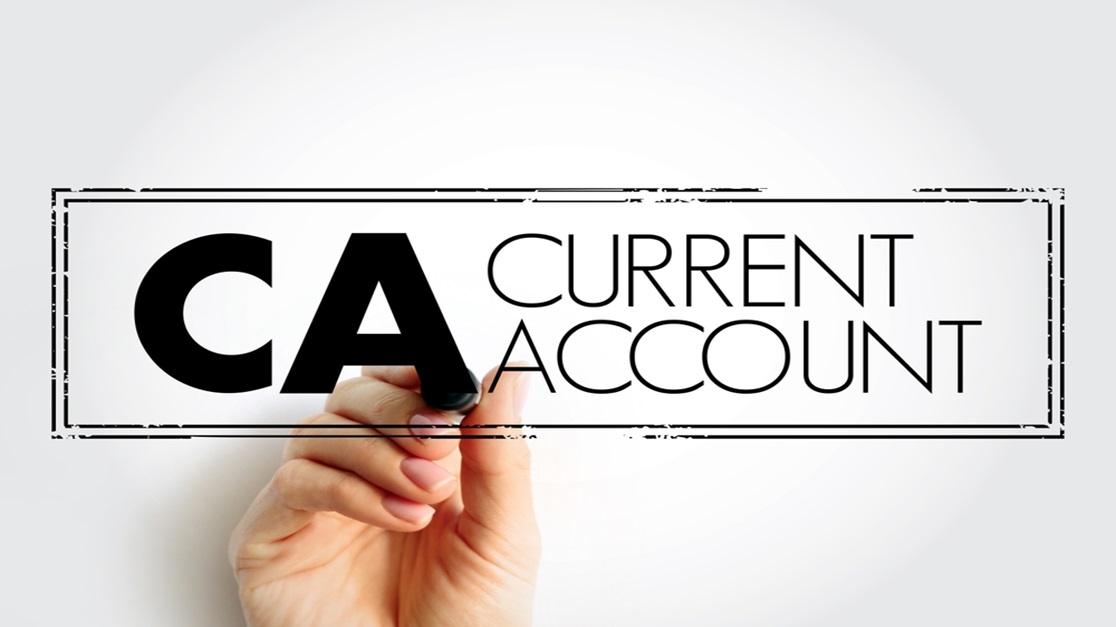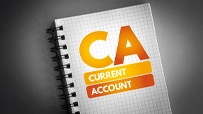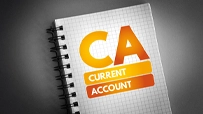Guide to Choose the Best Current Account for Your Business
August 29, 2025

Effective financial management is key to running a successful business, and choosing the right current account is a crucial part of this process. Whether you're running a start-up or an established company, you would need a Current Account to ensure seamless daily business transactions. However, with so many options available, it might get difficult to choose the best Current Account that aligns with your business requirements.
This guide simplifies the process by highlighting key factors to consider when choosing a current account. We'll compare different banking options and offer practical tips, ensuring you can make an informed decision that meets your business needs.
Key Factors to Consider When Choosing a Current Account
1. Understanding Your Business Banking Needs
As a starter, you first need to understand your specific business banking needs. Consider factors such as transaction volume, cash flow requirements, and banking services required. Ask yourself:
- How many transactions does my business handle on a monthly basis?
- Do I need access to a wide network of ATMs and branches?
- Will I require additional banking services like tax payments or payroll management?
- By answering these questions, you'll have a clearer idea of what features and services to look for in a current account.
2. Comparing Different Current Accounts
Now that you know your business banking needs, it's time to do a current account comparison. Let's take a look at some popular current accounts available in the market and choose amongst the best banking options:
- Business Edge Current Account: This account offers comprehensive banking solutions with 150 free cheque leaves per quarter and no additional charges for non-home branch transactions.
- Maxima Current Account: With unlimited cash withdrawal from any branch and a higher cash deposit limit, this account is ideal for businesses with high transaction volumes. It also offers additional services like tax payments and HR payroll management.
- Regular Current Account: Perfect for everyday business needs, this account provides 24/7 customer care assistance, free cheque leaves, and cash withdrawals.
- Privilege Current Account: Ideal for businesses looking for unlimited cash withdrawal from any branch and ATM transactions, along with the flexibility to define their own cash deposit limit.
- Premium Current Account: Designed for premium banking services, this account offers flexible cash deposit limits across all branches and unlimited free ATM transactions.
- Digital Current Account: Minimal paperwork, more convenience. The Digital Current Account allows you to enjoy the benefits of digital banking services.
3. Key Considerations for Choosing the Best Current Account
When comparing current accounts, keep the following considerations in mind:
- Fees and Charges: Review the fees and charges associated with each account. Look for hidden costs such as transaction fees, ATM charges, or minimum balance requirements.
- Transaction Limits: Ensure that the account allows sufficient transaction limits to accommodate your business needs. Check if there are any restrictions on cash deposits or withdrawals.
- Additional Services: Evaluate the additional services offered by each account. Some accounts providevalue-added services like tax payments, online banking facilities, or CMS (Cash Management Services).
- Branch and ATM Network: Consider the availability of branches and ATMs near your business location. Having easy access to banking services can save you time and effort in managing your finances.
4. Sample Calculation: Comparing Transaction Charges
Let's consider a scenario where your business processes 500 transactions per month. To compare transaction charges across different current accounts, refer to the table below:
Table 1: Comparison of Transaction Charges
| Bank | Transaction Charges per Month |
| Business Edge | ₹1500 |
| Maxima | ₹1000 |
| Regular | ₹2000 |
| Privilege | ₹2500 |
| Premium | ₹3000 |
Data as on 9 September 2024.
Based on this comparison, the Maxima Current Account offers the lowest transaction charges for your business.
5. Relatable Scenario: Cash Flow Management
Imagine you run a small retail business with fluctuating cash flows. In such a scenario, having a current account with flexible overdraft facilities like the BusiMoni OD Current Account can be beneficial (please note that this account has been discontinued). It allows you to access funds when needed and manage your cash flow effectively without facing immediate financial constraints.
6. Analogies: Choosing the Right Current Account
Choosing the right current account is like finding the perfect fit for your business. Just as you wouldn't wear shoes that are too tight or too loose, you need a current account that aligns with your specific requirements. It should provide the necessary features and services without burdening you with unnecessary fees or limitations.
Key Takeaways
- Understand your business banking needs before choosing a current account.
- Compare different current accounts based on fees, transaction limits, and additional services.
- Consider factors such as cash flow management and branch accessibility.
- Use sample calculations to compare transaction charges and identify cost-effective options.
- Choose a current account that fits your business requirements and provides value for money.
Final Thoughts
Choosing the right current account is vital for your business’s financial management and growth. By understanding your needs and comparing accounts based on fees, limits, and services, you can make an informed decision.
Ujjivan SFB offers a variety of current accounts tailored to different business needs, including our Business Edge and Maxima accounts. Explore the best options for your business at Ujjivan SFB Business Current Account.
Disclaimer:
The contents herein are only for informational purposes and generic in nature. The content does not amount to an offer, invitation or solicitation of any kind to buy or sell, and are not intended to create any legal rights or obligations. This information is subject to updation, completion, amendment and verification without notice. The contents herein are also subject to other product-specific terms and conditions, as well as any applicable third-party terms and conditions, for which Ujjivan Small Finance Bank assumes no responsibility or liability.
Nothing contained herein is intended to constitute financial, investment, legal, tax, or any other professional advice or opinion. Please obtain professional advice before making investment or any other decisions. Any investment decisions that may be made by the you shall be at your own sole discretion, independent analysis and evaluation of the risks involved. The use of any information set out in this document is entirely at the user’s own risk. Ujjivan Small Finance Bank Limited makes no representation or warranty, express or implied, as to the accuracy and completeness for any information herein. The Bank disclaims any and all liability for any loss or damage (direct, indirect, consequential, or otherwise) incurred by you due to use of or due to investment, product application decisions made by you on the basis of the contents herein. While the information is prepared in good faith from sources deemed reliable (including public sources), the Bank disclaims any liability with respect to accuracy of information or any error or omission or any loss or damage incurred by anyone in reliance on the contents herein, in any manner whatsoever.
To know more about Ujjivan Small Finance Bank Products Visit:"https://www.ujjivansfb.in"
All intellectual property rights, including copyrights, trademarks, and other proprietary rights, pertaining to the content and materials displayed herein, belong
to Ujjivan Small Finance Bank Limited or its licensors. Unauthorised use or misuse of any intellectual property, or other content displayed herein is strictly prohibited and the same is not intended for distribution to, or use by, any person in any jurisdiction where such distribution or use would (by reason of that person’s nationality, residence or otherwise) be contrary to law or registration or would subject Ujjivan Small Finance Bank Limited or its affiliates to any licensing or registration requirements.
FAQs
1. What documents are required to open a current account?
The documents required may vary depending on the bank, but generally include proof of identity, address proof, and business registration documents.
2. Can I open a current account for my sole proprietorship business?
Yes, many banks offer current accounts for sole proprietorship businesses. You will need to provide relevant business and personal documents.
3. Is there a minimum balance requirement for a current account?
Yes, most banks have a minimum balance requirement for their current accounts. The amount varies based on the type of account and bank.
4. Can I switch my current account from one bank to another?
Yes, it is possible to switch your current account from one bank to another. However, you may need to fulfill certain conditions and submit relevant documents.
5. Can I manage my current account online?
Yes, most banks provide online banking facilities for current accounts, allowing you to manage your account, make transactions, and access statements online.
6. Is a current account necessary for my business?
Yes, a current account is essential for managing business transactions separately from personal finances.
7. Are current accounts interest-bearing?
No, current accounts do not offer interest on deposits.
8. Can I get a debit card with a business current account?
Yes, most business current accounts come with a debit card for convenient transactions.
Latest Blogs

Missed Income or Errors? Here’s How ITR-U Can Save You from Penalties
August 13, 2025
Less than three weeks remain before the September 15 deadline to update income tax returns.

This Current Account is Designed to Empower Your Business
June 16, 2025
In the fast-paced world of business, having the right bank account can be a game-changer.

Digital Arrest: The Scam That Has Financially Affected Thousands Across India
August 13, 2025
Imagine receiving a video call from someone in uniform, flashing a government ID, and telling you that a parcel in your name has been caught carrying drugs or illegal documents.

The Impact of EBLR & MCLR on Your Home Loan Explained
March 20, 2025
On 6 August 2025, The Reserve Bank of India unanimously decided to pause its repo rate at 5.50%.

Business Loan vs Overdraft: Which One Is Right for MSMEs?
March 20, 2025
Despite MSMEs critical role in the economy, they often face a daunting challenge—access to timely and suitable credit.




